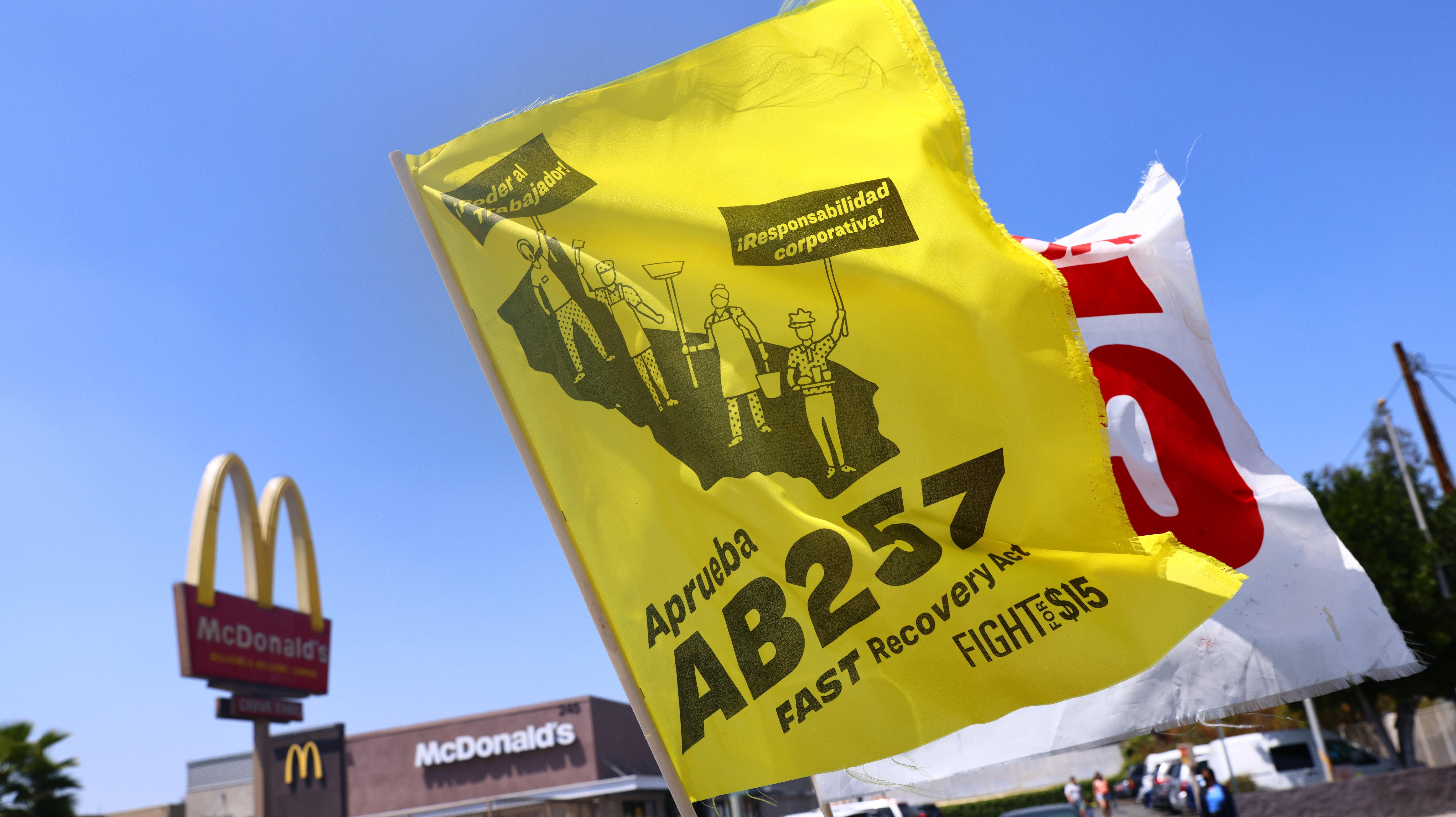How California's FAST Recovery Act Will Change Fast Food Everywhere
It's only a matter of time before California's groundbreaking legislation spreads to the rest of the country.
Fast food workers have long been fighting for higher wages and better working conditions. Over the past couple of years, that has manifested as a wave of organizing efforts across the country, with staffers at places like Chipotle and Starbucks forming unions to make these demands. The AP reports that this week in California, the FAST Recovery Act, a bill changing how fast food is regulated in the state, was approved by lawmakers in what is being called a "watershed moment" for the industry. All that's left for the bill to take effect is a sign-off from California Governor Gavin Newsom, and if implemented, it could change the way fast food restaurants are run across the country.
What is the FAST Recovery Act?
The FAST Recovery Act, or AB 257, will create a 10-member Fast Food Council made up of worker delegates, employer representatives, and two state officials who will set the standards for minimum wages, hours, and working conditions. Along with the statewide Fast Food Council, the bill allows cities and counties in California with populations of 200,000 or more to create their own local councils to provide recommendations to the statewide council.
According to the AP, an amendment to the legislation would cap any increased minimum wage for fast food workers at chains with more than 100 restaurants at $22 an hour next year with cost of living increases built in—that's a big jump from the state's current minimum wage of $15.50. Opponents to the bill warn that this will cause product prices to go up, something that I humbly point out is happening anyway because of inflation while the minimum wage remains the same.
Another fear expressed by the opposition is that the bill, as Republican Senator Brian Dahle tells the AP, is a "steppingstone to unionize these workers." Considering that the bill grew out of a union movement, I'd venture to guess that that's entirely the point. The council will not supersede any union and other organizing efforts but rather work in tandem with them, providing a direct line to legislators with the power to change laws around things like working conditions and minimum wage.
And it's not just politicians who are against it. Restaurant owners and franchisees have been vocal about concerns of rising costs affecting their bottom lines. According to Insider, International Franchise Association president Matthew Haller has been warning other restaurant owners that this will inspire similar legislation to pop up in other states—of course, supporters of the bill are hoping that it does.
The trickle down effect of fast food councils
We've already seen how quickly the Starbucks union wave swept the nation after one Buffalo, New York store became the first to unionize late last year—now there are 200 unionized stores across the country. All people need is one example of how it can work, one roadmap and jolt of inspiration to try forming a union for themselves. The FAST Recovery Act is poised to do the same for fast food regulation legislation.
When the fast food industry is regulated and working conditions are improved, that trickles down to the consumer. For example, many complaints revolve around workers being forced to come in for their shift even if they're sick—those germs can easily be spread to the food you're about to eat. Workers who are taken care of are in a better position to put all necessary care into the food and drink they're making and the service they offer. Stores with workers who aren't burned out from being understaffed won't have to close their doors because lack of staff.
With more fast food councils representing other states (plus major cities and counties within those states) we'll be able to gain a more comprehensive and realistic look at the current state of the industry nationwide. AB 257 outlines why it's necessary to hear from the workers themselves:
Numerous complaints filed by fast food workers with state and local health departments illustrate that many fast food operators routinely have flouted protections, including, but not limited to, failing to provide adequate protection against workplace violence, requiring workers to work without access to personal protective equipment, denying workers sick pay, failing to inform workers of exposure to COVID-19, actively hiding COVID-19 cases, and demanding that workers come to work when they are sick.
Despite corporate profits, fast food workers are poorly positioned to participate in a fast recovery and a more equitable economy, one that reflects improved job quality, wages, and working conditions, responsible use of technology, and modernized worker protections.
Once this bill is officially passed, it's only a matter of time before other states do the same to protect fast food workers and give them a seat at the table where decisions about their industry are being made. As with any change, there may be some hiccups along the way, but it's a step in the right direction for offering protection, appropriate compensation, and respect to some of the hardest working people out there. And on top of it, your burger and fries will taste better than ever.
